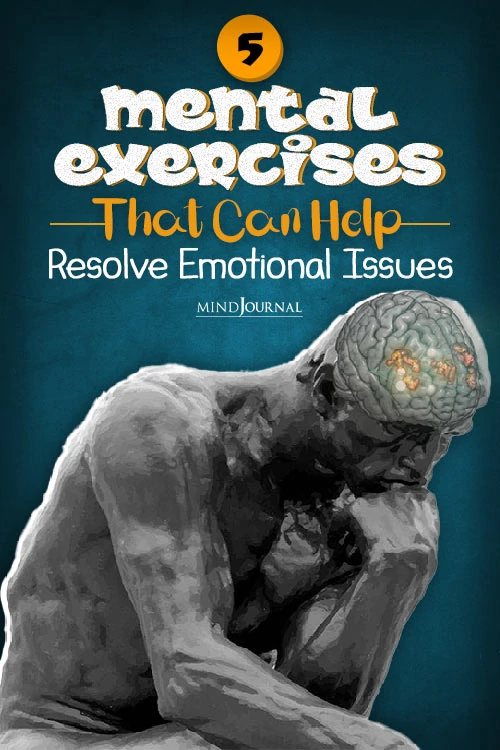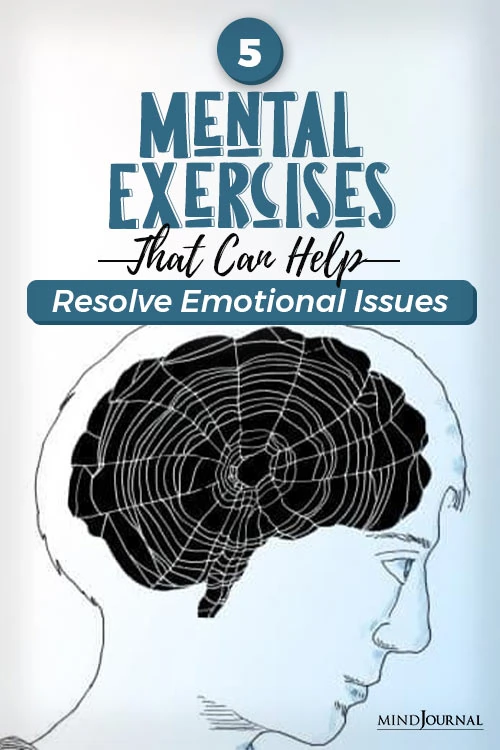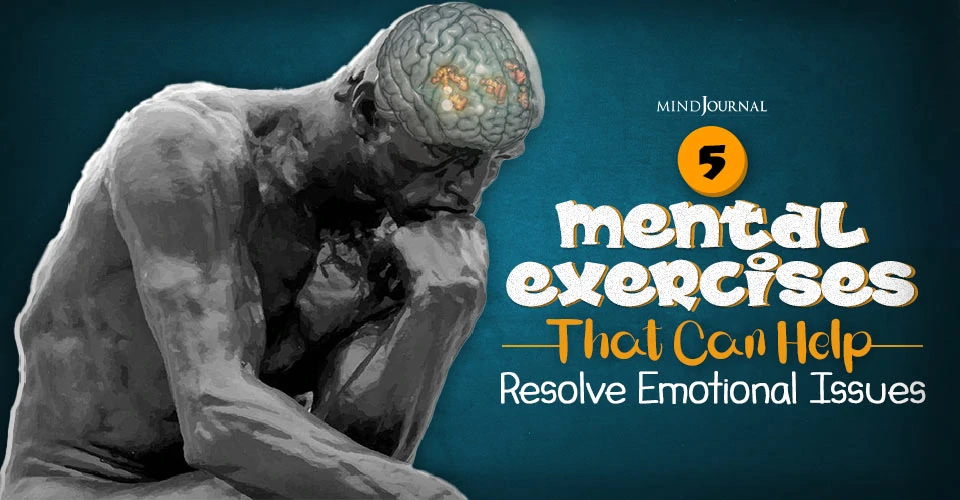Everyone experiences emotional issues at some point in their lives, and even though sometimes these emotional issues can be easily overcome, there are indeed times it feels that they’re going to drown you. It is during these moments when it becomes more important than ever to know exactly how you can resolve emotional issues in the right way.
Cultivating the mindset to understand, feel, endure and resolve emotional issues and then strengthening your emotional fitness is one of the most important things you can learn in life. People who are good at this know that the way they deal with their emotions now will decide how their lives will be 15 years down the line.
People whose emotional fitness is strong, have the ability to stay calm in high-pressure and chaotic situations, and most importantly, know how to handle them. They don’t panic uselessly or give up, rather they face the situation head-on, and deal with it. No matter how tough and challenging it might be.
If you’re someone who is struggling with your emotional fitness and find it tough to resolve emotional issues, then a few exercises can help you change this. These exercises can help you do some much-needed inner work and you will find yourself staying calm and mentally stable in the face of challenges.
Related: 7 Negative Mindsets That Undercut Your Mental Strength and Resilience
5 Mental Exercises That Can Help Resolve Emotional Issues
1. Acknowledge Everything You Are Feeling Instead Of Running Away From Them.
If you keep on running away from your emotions and feelings, it will just be a matter of time before they catch up with you. And trust me, how you feel then will be even more difficult to handle. Acknowledging your emotions helps you to understand where all of it is coming from and what is it exactly that is triggering them.
Continuing to deny those feelings will push your brain to release the stress hormone, cortisol, because it is under the impression that it’s supposed to fight an enemy, as a result of which your body ends up spending a lot of energy fighting itself.
The most powerful thing about acknowledging your emotions is the moment you do that, you are giving yourself an opportunity to transform your mindset and focus on finding a solution instead of simply obsessing about the problem. This stops your brain from being in a reactive mode all the time and helps you be more aware of what’s really happening.

2. Feel All Your Emotions Completely.
One of the most powerful ways to resolve emotional issues and strengthen your emotional fitness is by feeling each and every emotion that is coursing through your body and mind. If you keep on judging yourself all the time and stop yourself from feeling your emotions, after a point, all of it is going to take a heavy toll on you. Your emotions might tell you that you shouldn’t be feeling a certain way, but try not to give into that.
If you let your shame and guilt stop you every time from feeling an uncomfortable and painful emotion, it’s also going to stop you from expanding your emotional capacity. Always remember that those emotions exist because triggers exist and it’s a cycle. Complete the whole cycle and feel all your emotions completely.
The moment you choose to feel your authentic emotions is the moment you stop fear, uncertainty, and anxiety from taking over you. You choose to focus on the light instead of the darkness in your mind.
Related: How To Overcome Difficult Situations In Life: 5 Simple Steps
3. Take A Moment To Check-In With Yourself A Couple Of Times In A Day.
Every day you are going to involuntarily feel things before you even have a chance to think properly about them. For example, if you see something scary on the news, you will find yourself feeling uncertain and anxious. If you stub your toe, you will immediately have pain shooting up your entire leg. These feelings and reactions happen before you even get a chance to understand and decide how you want to feel about them.
That is why you need to give your rational brain an opportunity to keep up with all the emotions that are running through your mind. Check-in with yourself an ample number of times every day to understand better what is it that you’re choosing to focus on, and see for yourself what emotions you’re giving the most importance to.
Interestingly, your subconscious mind always chooses to amplify the negative things that are going on around you, due to your survival instinct. These negative things can end up taking over you unless you shift your focus from them and bring awareness.
By bringing awareness to your emotions and thoughts, you are consciously making a decision to stop obsessing over the negative stuff only. By checking in with yourself every day, you are trying to understand the reason behind your emotions and then take appropriate steps in order to deal with them better.
4. Try Not To Let The Conflict In Your Mind Become Real And More Aggressive.
Most of the time we let the worst-case scenario mindset control our thoughts and fear and make them seem more serious than they actually are. The worst-case scenario comes into play when we feel anxious about the future and hold on to the pain in the past. It’s this uncertainty that makes us feel all kinds of negative emotions and even amplifies them, making us feel hopeless and scared.
But the good news is that you can stop this from happening. One of the biggest and most helpful tools that you can fall back on to resolve emotional issues is by seeing everything for what they truly are. If you try and focus on what you’re feeling, chances are you will realize that more often than not you overreact to a lot of things. Your mind can be your best friend or your worst enemy, it’s all up to you how you handle it.
You need to fight the monsters that are threatening to overwhelm you and your brain before they become too aggressive and the conflict gets out of hand. Use your mental strength to fight all those negative emotions that are making you feel scared and tell them out loud, “I’ve got this!”. The more control you have over your mind, the better you will be able to deal with the problems and difficulties in your real life.
Related: 10 Painless Ways To Turn Your Struggles Into Strength
5. Try Not To Label Any Of Your Emotions As “Wrong” Or “Unnecessary”.
None of your emotions can ever be unnecessary or wrong, and always stop yourself whenever you find yourself going down that train of thought. Whatever you feel, be it good or bad, all of it is a reflection of your reality and if you try to dismiss any of them, you’ll be questioning your reality too.
If you keep on questioning your emotions, it will just be a matter of time before you lose accountability and look for someone else to blame. But if you have the awareness and power to acknowledge and accept all your thoughts, emotions, and feelings, you will open yourself up to feedback and learn to understand them instead of always reacting to them.
All your emotions are trying to tell you something and trying to label them as “wrong” will only make things more confusing and difficult for you in the long run.
Wanting to resolve emotional issues is the very first step to success and happiness. By strengthening your emotional fitness, you are learning to not let negative energy and negative thoughts consume you, whenever you are faced with a challenging situation. Keep these pointers in mind and practice them on a daily basis if you’re serious about having strong emotional fitness.
Want to know more about how you can resolve emotional issues and have stronger emotional fitness? Check this video out below!










Leave a Reply
You must be logged in to post a comment.